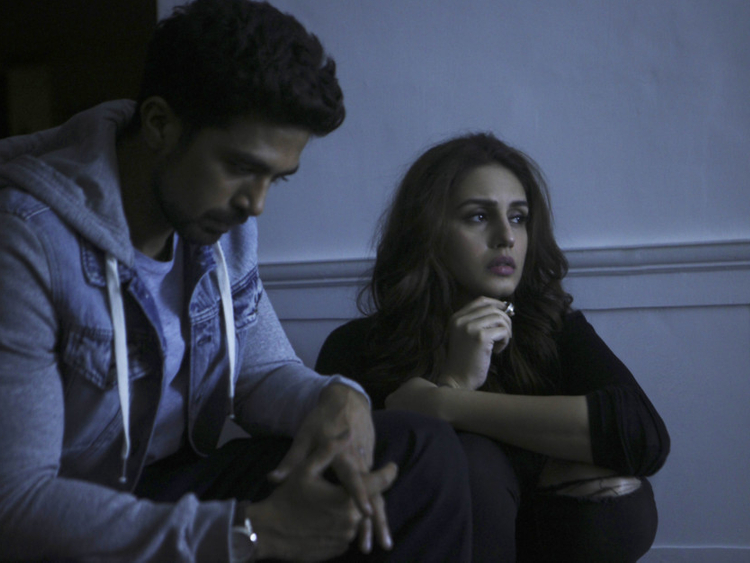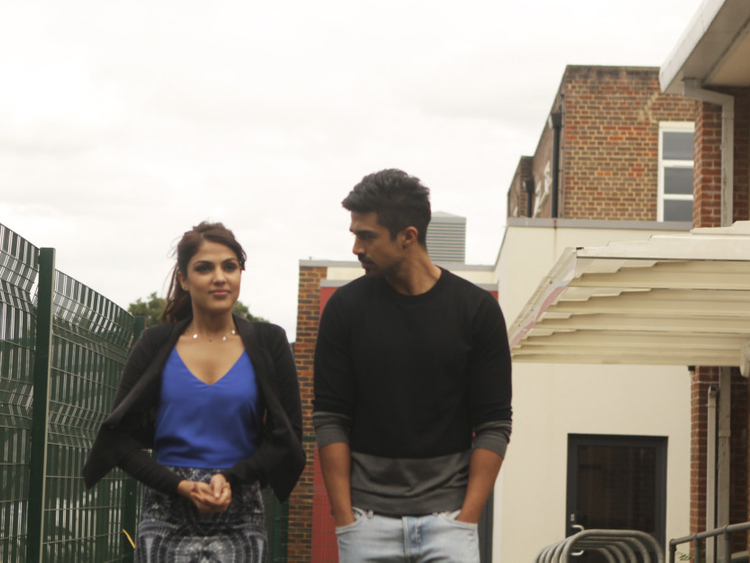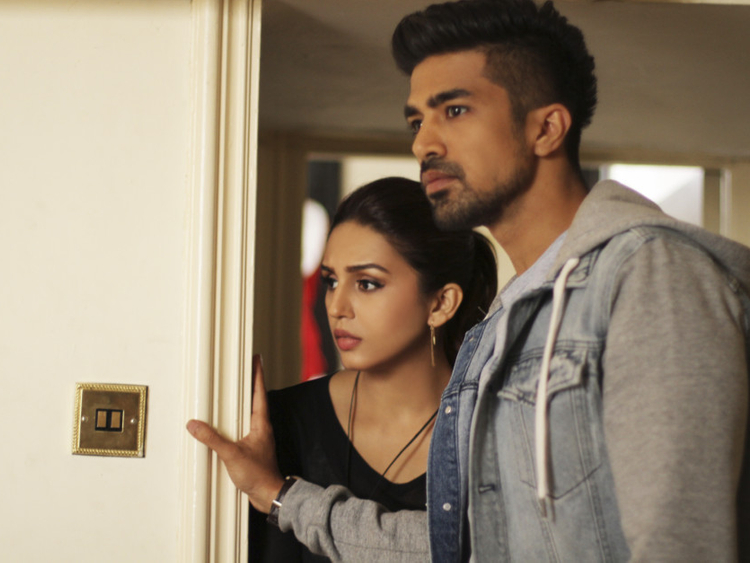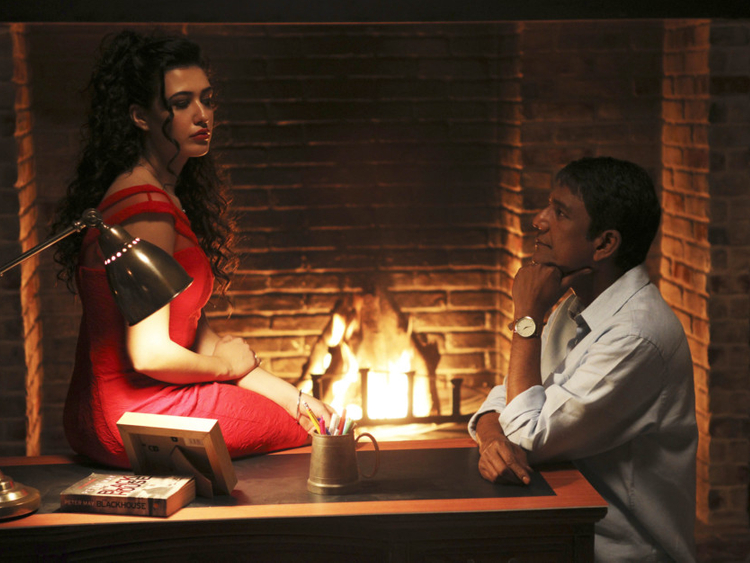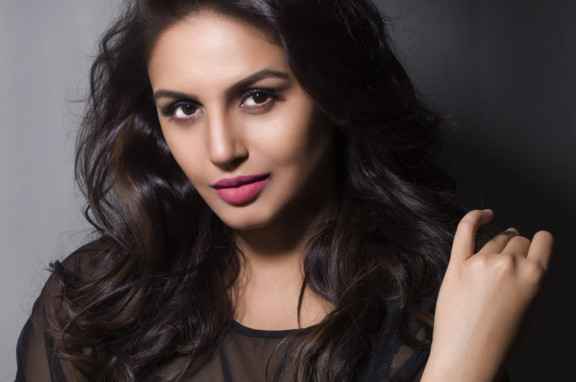
Bollywood actress Huma Qureshi and her director Prawaal Raman are painfully aware that horror films in Hindi cinema are a tainted genre.
Not many take it seriously and it’s haunted with a reputation of being silly or sleazy rather than scary. And critics love to punch away at the ridiculousness of it all.
But this team from the supernatural thriller Dobaara: See Your Evil, out in the UAE on June 1, hopes to inject some dignity and grace into that fading category.
“Rather than re-defining the horror genre in India, we end up making many tacky films as far as horror genre is concerned. They are cheesy, B-grade and that’s really unfortunate,” said Qureshi in an interview with Gulf News tabloid! over the phone.
Dobaara: See Your Evil is the official adaptation of the Hollywood hit Oculus, a tale of a mirror with destructive supernatural powers that wreak havoc in the lives of the family who own it. Also featuring her real-life brother Saqib Saleem, the two had a nasty battle to fight during the making of it, claims the actress.
“We were under a lot of pressure to include a lot of soft porn elements into the film. We have resisted it and we have fought it. We have had to — both Saqib and I — put our foot down saying this is not the film that we signed up for. Ultimately, it is about remaining true to the genre,” said Qureshi, who was in the midst of filming for a film starring South Indian matinee idol, Rajnikanth, while attending our interview call. But what attracted her to the Hindi adaptation of the Hollywood hit Oculus was its blend of drama and thrills.
“I always knew that Oculus was voted as one of the scariest films out there. But to me it’s also a strong family drama with super-natural twists. It’s about a brother-sister duo who have been fighting with each other about what happened in their past… One sibling has an explanation that is supernatural, and the other has a more rational explanation about a horrific incident in their family,” said Qureshi. The siblings, based in London, are desperately seeking closure from an incident that marred their life.
“Whenever we have to make horror films, we resort to cliches. There’s a big space for international standard horror film,” she said.
It was not just Qureshi who was aware of the potential to be tapped. Director Raman knew that his sensibility wouldn’t allow him to resort to sleaze or the usual horror crutches such as a haunted mansion and exorcism to seep into his storytelling. His credits include the creepy Darna Zaroori Hai and the thriller Main Aur Charles.
“I have never stuck to the typical way of storytelling when it comes to horror because those are unfortunately, the pulp horror — just because the makers know it will get an A certificate, those films became a medium to showcase the audience some erotica and soft porn through it. The audience was limited so why not give them the thrills, was their thought,” said Raman. But stooping to those low standards isn’t his thing. From buying the rights from the makers of Oculus to insisting that he would have the license to make changes to the original in his adaptation were some of his legitimate demands.
“The idea was not to make it with the so-called Indian sensibility. Sensibility is universal, it’s not about India — it’s just whether it’s a good film or a bad film. Once a narrator changes, even the narrative would naturally change,” said Raman.
But they are not some saviours of the horror genre, says Qureshi with a laugh.
“Ultimately, it is about remaining true to the genre. We can’t take a subject and dumb it down or sleaze it up... this is our humble experiment,” said Qureshi. The intention of why you make a film should be noble and not be marred by outside demands of making it a popular, mainstream film, claims the actress.
“It’s about how you carry the film forward and your intentions behind it... I feel strongly about women rights and representation of women in the media. I don’t want to do a film where you are no more than a commodity,” said Qureshi, adding that she will not endorse any kind of pressure to show skin if the idea is to titillate.
“It is not even a thin line, the line is quite clear. You can push yourself to play a certain character — you can even show a certain amount of skin so be it. But to zabardasti [force], without any meaning, to put it [nudity] in a film, I don’t endorse it and I will speak about it. I will take a stand against it. I always have and I always will.”
Qureshi has a point. The actress has conquered Bollywood at her own pace and rules. The epitome of body positivity, she’s a person who featured on a notorious magazine cover with the headline ‘My body, my rules’ and called out body shaming in Bollywood. Recently, she also worked in Gurinder Chadha’s partition drama, Viceroy’s House. It’s a story about humanity and history seen through the lens of Chadha.
“It is a unique take at the [Indo-Pakistan] partition... We always talk about the British divide and rule policy, but there is a lot more than it meets the eye. It throws light on why the partition took place,” said Qureshi, who comes from a restauranteur family.
The film will resonate with the current socio-political climate around the world that’s marred by immigration crisis and the right wing sentiment, claims the actress.
While she considers her kebab shop as a good security blanket, it’s the acting that rocks her proverbial boat.
“Actors are like gipsies and we go wherever our work takes us. We are nomadic — we go to the sets, we live there till the film ends and then go someplace else. In my head, I feel I am a part of this big mad circus,” said Qureshi.
Sometimes it gets bizarre too. In Dobaara: See Your Evil, her on-screen relationship with her sibling is troubled. And that emotion was alien to them in her real life. She lives in Mumbai with her brother and is so close that he’s the one she goes to for “boyfriend troubles” and to discuss if she should accept a script or not.
“We are cartoons really — goofy and crazy. He’s my best friend and he knows everything that’s going on in my life. But in the film, we have a strange relationship... The easiest thing for us to do would have been a situational comedy like the ‘brother of the bride’ comedy. But this film pushed us out of our comfort zone.”
Don’t miss it
Dobaara: See Your Evil releases in the UAE on June 1.



